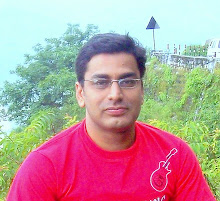Are we prepared
Friday, September 19, 2008
 Ideally, terror strikes should not occur. However, we do not live in an ideal world. It is almost impossible to foil every terror conspiracy in a country that is as vast and populated as ours. Which brings us to the question: How prepared are we to deal with the aftermath of a terror strike? It is imperative that the stocktaking exercise currently underway — on how to tackle terror — includes evaluating the effectiveness of our emergency services. Right now, restructuring our security agencies, better equipping them and adopting tougher laws are dominating the agenda. These are certainly important issues. But we should not also neglect the aspect of preparedness to respond to terror attacks, when and if they happen. There are any number of examples to underline this fact. After each violent attack — be it in Hyderabad, Ahmedabad, Jaipur or Varanasi — emergency services have proved to be less than adequate. The number of ambulances available to transport the injured is woefully short in most of our cities. Hospitals, especially those run by the government — where the majority of the injured are rushed to for medical attention — struggle to cope with the demands of such situations. Often there aren’t enough beds and life-saving medicines are in short supply. The national capital is relatively better equipped than other cities, but even here there has been a shortage of anti-gangrene serum to treat the victims of the recent bomb blasts, which is baffling. In advanced countries, the damage wreaked by terror strikes is mitigated by efficient response mechanisms. A good example would be how London’s emergency units handled the 7/7 bombings. We would do well to learn from such examples. However, for that to happen there must be political will and accountability. It does not help, for instance, to have a Union health minister who devotes time to prior commitments even as the capital is bombed and its medical care machinery struggles to cope. Anbumani Ramadoss has time and again proved that his priorities are grossly misplaced. He would rather urge chief ministers to quit smoking and move with mercenary zeal against colas and fast foods, instead of putting in place frameworks that enable our states to shore up the public health system. Always, the good minister has an excuse to explain the abysmal state of our health-care infrastructure. There can be no more excuses, sir; the country cannot afford it anymore.
Ideally, terror strikes should not occur. However, we do not live in an ideal world. It is almost impossible to foil every terror conspiracy in a country that is as vast and populated as ours. Which brings us to the question: How prepared are we to deal with the aftermath of a terror strike? It is imperative that the stocktaking exercise currently underway — on how to tackle terror — includes evaluating the effectiveness of our emergency services. Right now, restructuring our security agencies, better equipping them and adopting tougher laws are dominating the agenda. These are certainly important issues. But we should not also neglect the aspect of preparedness to respond to terror attacks, when and if they happen. There are any number of examples to underline this fact. After each violent attack — be it in Hyderabad, Ahmedabad, Jaipur or Varanasi — emergency services have proved to be less than adequate. The number of ambulances available to transport the injured is woefully short in most of our cities. Hospitals, especially those run by the government — where the majority of the injured are rushed to for medical attention — struggle to cope with the demands of such situations. Often there aren’t enough beds and life-saving medicines are in short supply. The national capital is relatively better equipped than other cities, but even here there has been a shortage of anti-gangrene serum to treat the victims of the recent bomb blasts, which is baffling. In advanced countries, the damage wreaked by terror strikes is mitigated by efficient response mechanisms. A good example would be how London’s emergency units handled the 7/7 bombings. We would do well to learn from such examples. However, for that to happen there must be political will and accountability. It does not help, for instance, to have a Union health minister who devotes time to prior commitments even as the capital is bombed and its medical care machinery struggles to cope. Anbumani Ramadoss has time and again proved that his priorities are grossly misplaced. He would rather urge chief ministers to quit smoking and move with mercenary zeal against colas and fast foods, instead of putting in place frameworks that enable our states to shore up the public health system. Always, the good minister has an excuse to explain the abysmal state of our health-care infrastructure. There can be no more excuses, sir; the country cannot afford it anymore.



0 comments:
Post a Comment